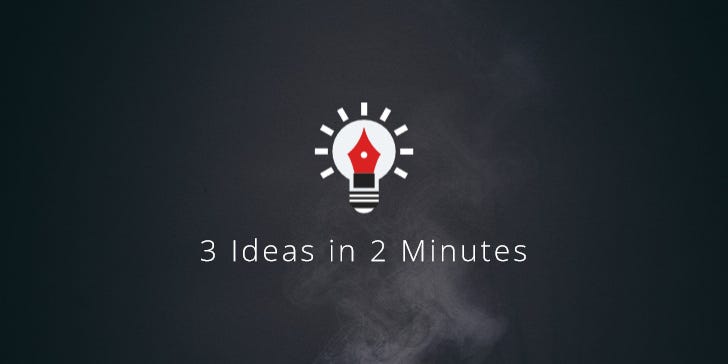#220: Mood-Congruent Memory, Motivated False Memory & the Two-Minute Rule
3 Ideas in 2 Minutes on Man v Memory
I. Mood-Congruent Memory
Imagine this. Waking up on a sunny morning on your son’s birthday, looking into his sparkling eyes, you recall all the beautiful memories from your stellar family life.
That’s Mood-Congruent Memory in action; the tendency to recall memories that match your current emotional state. When you’re happy, your brain naturally brings up positive moments. Unfortunately, that’s also true when you’re miserable. Then you lean toward gloomy or frustrating memories. Guess where your mind wanders when you wake up to a whinging little monster on a rainy winter morning.
Emotions act like mental search cues, making mood-consistent memories easier to access. This subtle filter can shape how we reflect on our lives. On a cheerful day, you might overestimate how often good things happen. On a gloomy day, you may dwell on failures or setbacks. Mood-Congruent Memory shows that our recollection of the past isn’t neutral; it bends to match our present attitude. This quietly colours how we perceive ourselves and our experiences.
II. Motivated False Memory
Motivated False Memory is a similar phenomenon. It happens when our brains “bend the truth” to make us feel better about ourselves. We often remember things more positively than they actually were. We sometimes add details that never happened. Or forget the negative parts. All this helps us keep a good self-image.
So these memory slips aren’t random. They can boost confidence in our future self and make us feel better in the present. Thriving through self-deception, if you will. The bottom line is that our memory isn’t a perfect tape recorder. It’s more like a storyteller with a soft spot for happy endings.
III. Two-Minute Rule
Sometimes you need to outsmart that unreliable storyteller. When facing a minor task, such as fixing a loose door handle around the house, you can follow my personal protocol:
Notice the loose door handle. Add it to your mental to-do list (because of course you’re busy right now). As time passes, de-prioritise (i.e. forget) the task even further — but be reminded every time you touch that damn loose door handle. Next, promote the task to become a reminder on your phone, where it undergoes four more weeks of re-prioritisation. When the door handle is about to fall off completely, bump the task to the top of your list and fix it within a minute. Finally, pat yourself on the back for a job well done, mate.
You could follow that protocol. Or…you follow the Two-Minute Rule:
If a task would take less than two minutes, do it immediately.
Because the mental effort of remembering the task, managing it in your memory and dealing with the anxiety of not doing it often outweighs the short time it takes to simply complete it now. Putting it off is just not worth all the effort. 🐘
Have a great week,
Chris
themindcollection.com

